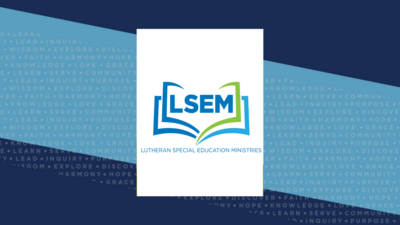Impacting Children’s Lives with a Degree in Special Education

The field of special education is one that provides learners of all abilities and needs with a high-quality, inclusive education that is tailored to serve them as unique individuals. Under the Individuals with Disabilities Education Act (IDEA), all children in grades K-12 with disabilities are entitled to receive a free and fair public education that meets their needs. At Concordia University, Nebraska, undergraduate students can gain certification as a K-12 special educator, allowing them to work in public and private educational settings.
Education for the special educator
At Concordia, your path toward becoming a special educator begins early. You’ll have opportunities to gain hands-on experience in the classroom throughout your time at the university. During your last semester of college, two eight-week student teaching placements will provide you with real-life experience working in a classroom, both locally and in a different town, state or country. As a special educator, you may have the chance to work in countless locations both within and beyond the United States; student teaching prepares future special educators for these possibilities.
To prepare for a career as a special educator, students are required to take courses about learners with mild to moderate disabilities, instructional practices for these learners, tools for educational assessment and intervention, professional standards and inclusivity as it relates to providing equitable education to students of all abilities. A wide-ranging, holistic core curriculum like this gives special education students the knowledge they need to succeed both in their undergraduate field experience and their professional careers. Students can choose to supplement their study further with concentrations in content or subject areas like mathematics, English language arts or natural science.
Working as a special educator
With a B.S.Ed. degree in special education from Concordia Nebraska, you’ll be eligible to receive a teaching certification from the state of Nebraska as a K-12 special educator. With this certification, you will be able to teach in the state of Nebraska or another state (with adherence to the state’s individual teacher licensing requirements). This may look vastly different depending on the setting in which you work. Towns and schools of all sizes and levels need special education teachers. Therefore, you may end up serving a broad or narrow range of students depending on the size of your district and school.
Furthermore, a B.S.Ed. in special education can also prepare you to serve in other professional capacities, such as a speech pathologist or reading specialist. These roles both require further education – namely a master’s degree in speech-language pathology or reading and literacy – but can open new doors for students who’ve studied special education. Options for specialization within the discipline of special education are available, especially if an educator continues their training with a master’s degree in the field.
Choosing populations to serve
Special education is a broad degree – it can appeal to students who have an interest in serving students with Down Syndrome, are neurodivergent or have other specific needs. Students may also prefer service in public, private or parochial schools, working with students of any age. From preschool through high school, special educators can assist students with classroom learning challenges, physical limitations, sensory disabilities and neurological differences. Many options are available. Some special educators may work in resource centers or inclusive classrooms, where general education students learn alongside peers in special education programs.
Later in the school experience, special educators may even assist older students in developing skills for independent living, as eligibility for services may not expire until age 21. Though students’ IEPs may change throughout their journey in the educational system, special educators also play a role in contributing to and updating these individual plans to fit students’ current goals. These plans are an integral part of providing an equitable education for students with all types of needs.
The special education major at Concordia Nebraska is designed to instruct students in the practice of teaching children with specific differences, strengths and needs. With a special education degree, you can find meaningful work in this branch of education tailored for your passions, strengths and professional plans. Learn more about Concordia’s undergraduate special education program here.
Interested in special education at Concordia?
Related Stories


